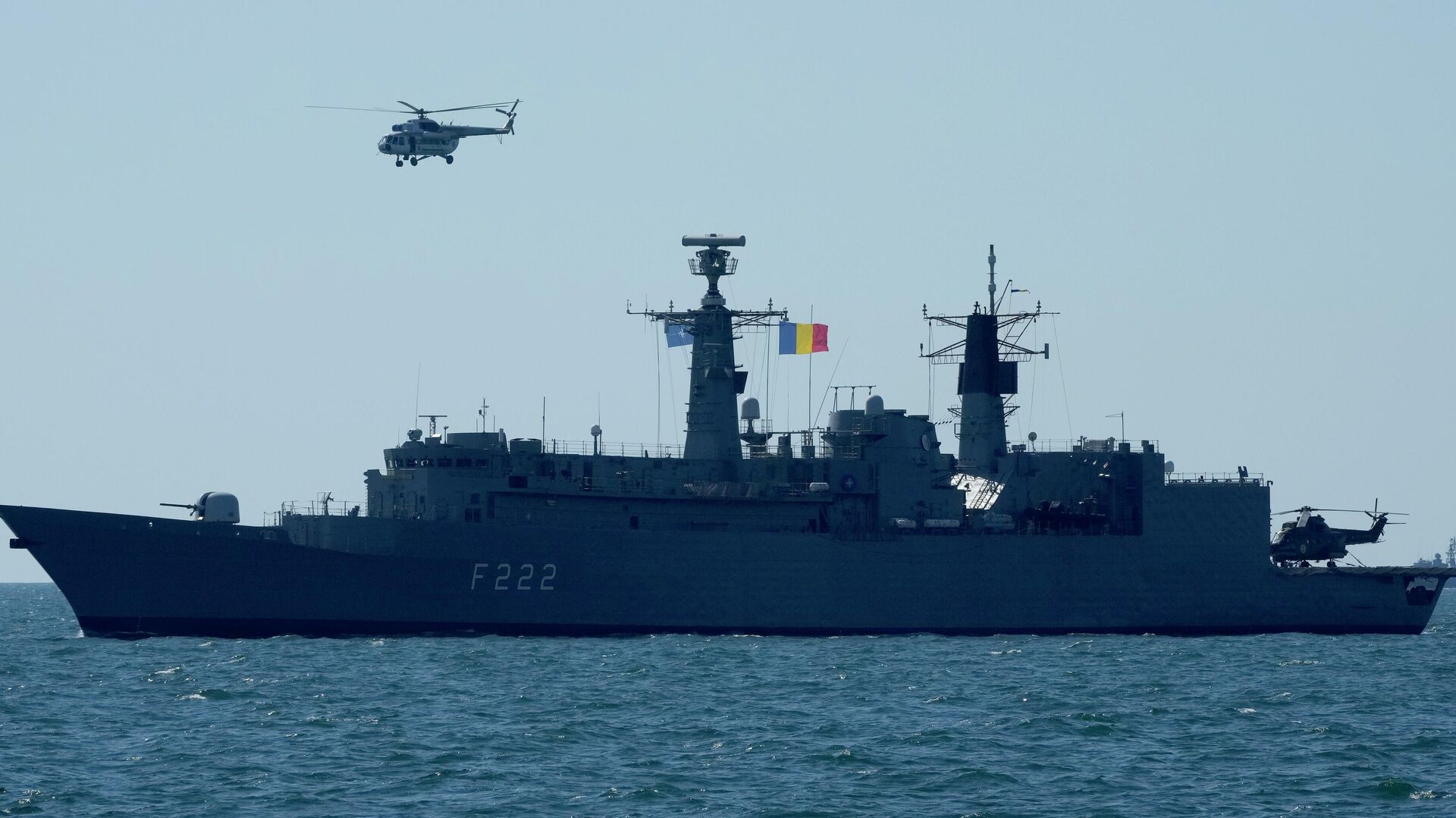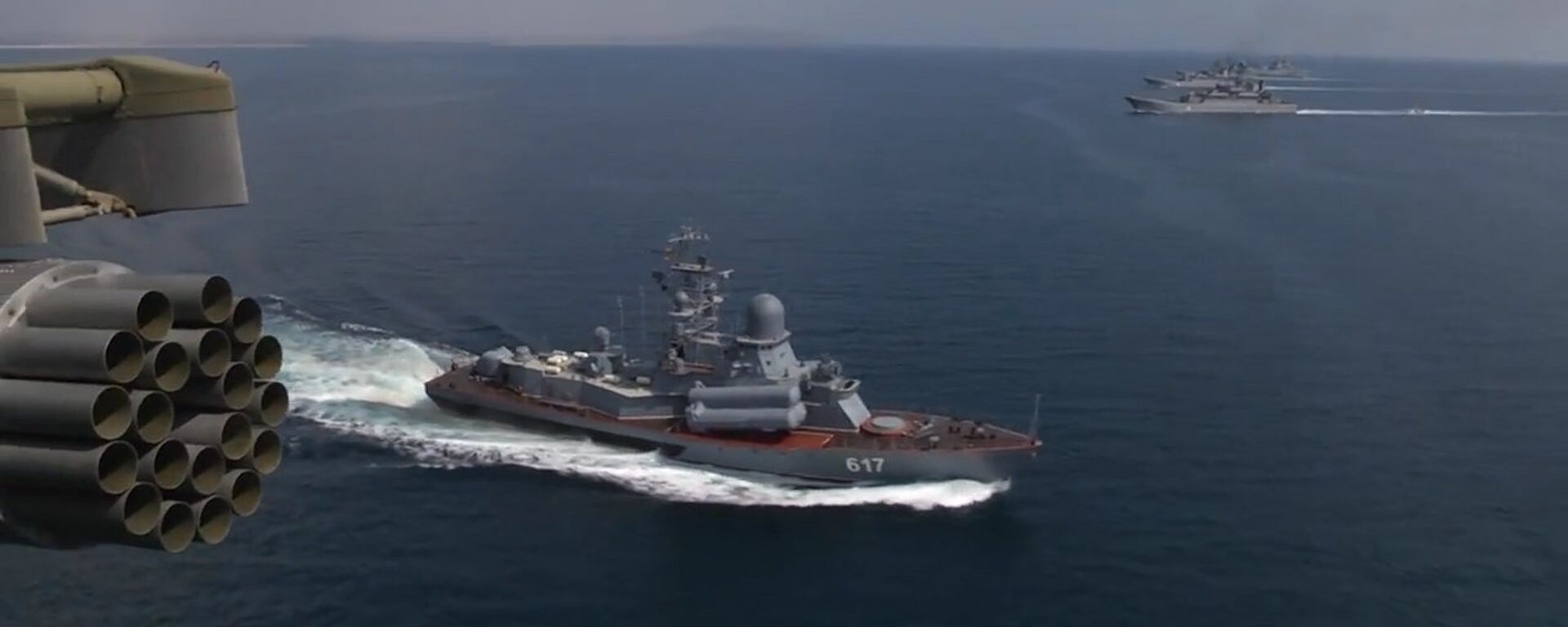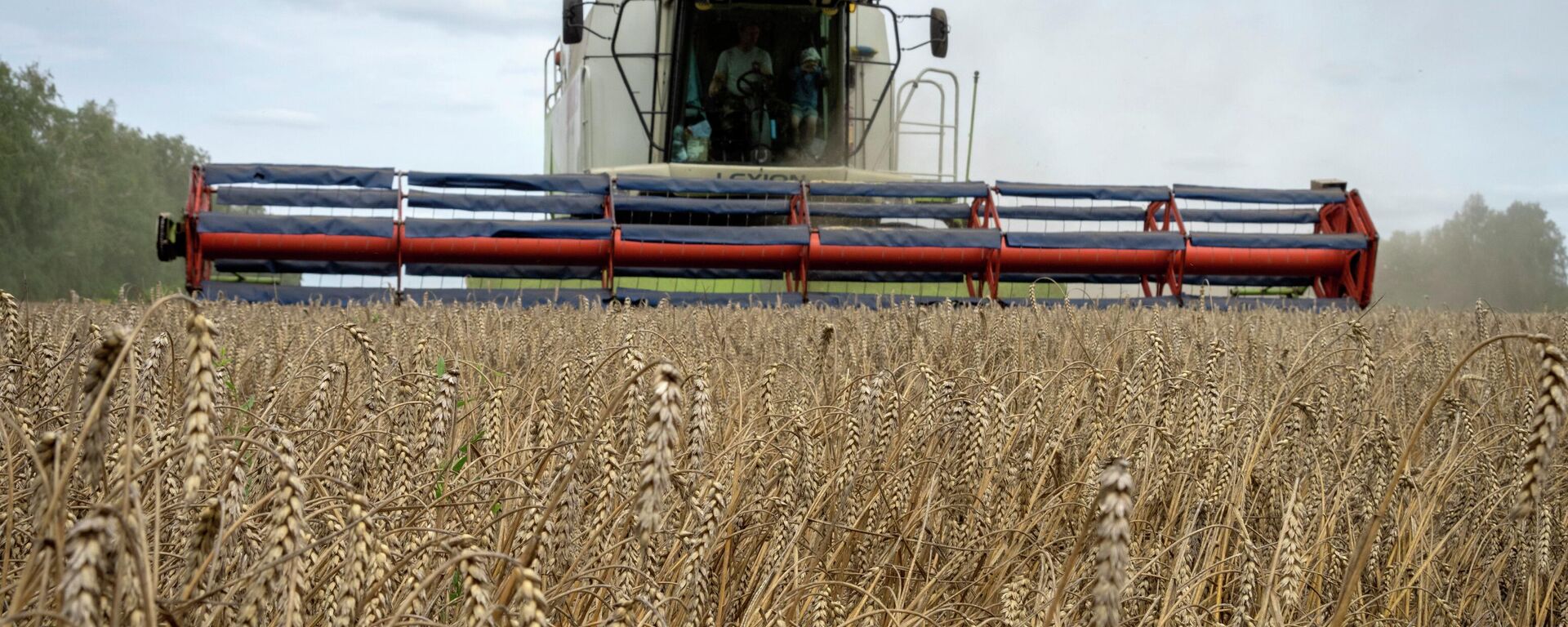https://sputnikglobe.com/20230724/black-sea-not-big-enough-for-nato-to-attack-russian-warships-and-get-away-with-it-1112110605.html
Black Sea ‘Not Big Enough’ for NATO to Attack Russian Warships and Get Away With It
Black Sea ‘Not Big Enough’ for NATO to Attack Russian Warships and Get Away With It
Sputnik International
Retired US Admiral James Stavridis says NATO warships should escort Ukrainian grain ships in the Black Sea and fire on Russian warships if threatened. Asked... 24.07.2023, Sputnik International
2023-07-24T13:29+0000
2023-07-24T13:29+0000
2023-07-24T16:14+0000
analysis
james stavridis
volodymyr zelensky
recep tayyip erdogan
turkiye
black sea
russia
nato
montreux convention
https://cdn1.img.sputnikglobe.com/img/07e7/07/18/1112110387_252:0:3893:2048_1920x0_80_0_0_f2973303d57c5c9164d825032d4e4817.jpg
“NATO and the US could escort the grain shipments at sea, something they have plenty of capability to do with three major NATO nations in the Black Sea,” Stavridis said, commenting on the possibilities of getting Ukrainian grain out of Odessa now that Russia has suspended its participation in the grain deal and can no longer guarantee the humanitarian corridor’s safety.In telephone talks with Turkish President Recep Tayyip Erdogan late last week, Ukrainian President Volodymyr Zelensky called the reopening of the Black Sea grain corridor an “absolute priority.” Also last week, US media reported, citing an informed source, that Ankara had rejected the “highly risky move” of escorting Ukrainian grain vessels with warships, citing Moscow’s likely reaction.NATO Fantasies“They’re asking Turkiye [to intervene], but how is Turkiye supposed to do so?” Russian defense analyst Vasily Dandykin told Sputnik. “This is a matter of principle for Ankara – the basis of the country’s independence and its behavior, on which they basically build their policy. If Turkiye violates its principle, the country’s status will fall,” Dandykin explained.The analyst noted that although Ankara has delivered Bayraktar drones to Kiev, has maintained contact with Zelensky, the country also maintains strategic contacts with Moscow. “Turkiye has a centuries-old history of let’s call it ‘bazaar politics,’ agreements based on what’s profitable, what’s not profitable. Therefore, there is probably a misunderstanding among Western powers regarding the position of this particular partner.”On the other hand, “Turkiye really does have a rather powerful fleet, unlike Bulgaria and Romania,” the other Black Sea-adjacent NATO powers hinted at by Stavridis as candidates for the escort mission, Dandykin said.“The Black Sea Fleet would be capable of rebuffing the fleets of these countries, and then some. After all, the fleet consists not only of ships, which, by the way, are armed with Kalibr cruise missiles…[It also has] coastal missile systems, armed with practically indestructible Onyx missiles, Bal coastal defense systems, naval aviation, and much more. That’s if we’re talking about Crimea. But there’s also the Novorossiysk naval base. In other words, the Black Sea isn’t big enough, let’s put it this way, for such a reckless gamble to succeed,” the Russian observer stressed.Montreux ConventionAs for NATO powers outside the Black Sea, including the United States, their entry into the body of water to escort Ukrainian grain ships would violate the Montreux Convention of 1936, which restricts the presence of foreign warships in the aquatorium to 21 days, Dandykin pointed out.On top of that, in connection with the Ukraine crisis, Ankara has decided to close the Turkish Straits altogether not just to foreign warships, but to Ukraine and Russia as well.Ultimately, Dandykin believes there’s a certain “limit” beyond which Kiev’s NATO partners, the US and the UK in particular, will not dare go. Accordingly, Stavridis’ proposals to deploy alliance warships to escort Ukrainian grain ships is a pipe dream, the retired Russian officer summed up.
https://sputnikglobe.com/20230723/ex-us-admiral-proposes-attacking-russian-ships-in-black-sea-amid-grain-deal-spat-1112085294.html
https://sputnikglobe.com/20230407/bulgarian-farmers-resume-protests-over-cheap-ukrainian-grain-1109236302.html
https://sputnikglobe.com/20230724/putin-says-grain-deal-used-to-enrich-us-europe-lost-its-meaning-1112099137.html
turkiye
black sea
russia
Sputnik International
feedback@sputniknews.com
+74956456601
MIA „Rossiya Segodnya“
2023
News
en_EN
Sputnik International
feedback@sputniknews.com
+74956456601
MIA „Rossiya Segodnya“
Sputnik International
feedback@sputniknews.com
+74956456601
MIA „Rossiya Segodnya“
russia, ukraine, black sea, turkiye, bulgaria, romania, warships, grain deal
russia, ukraine, black sea, turkiye, bulgaria, romania, warships, grain deal
Black Sea ‘Not Big Enough’ for NATO to Attack Russian Warships and Get Away With It
13:29 GMT 24.07.2023 (Updated: 16:14 GMT 24.07.2023) Retired US Admiral James Stavridis says NATO warships should escort Ukrainian grain ships in the Black Sea and fire on Russian warships if threatened. Asked for comment, Russian Captain First Rank (ret.) Vasily Dandykin said there’s only one Black Sea-adjacent NATO member that can challenge Russia, and it’s not mad enough to do so.
“NATO and the US could escort the grain shipments at sea, something they have plenty of capability to do with three major NATO nations in the Black Sea,” Stavridis
said, commenting on the possibilities of getting Ukrainian grain out of Odessa now that Russia has suspended its participation in the grain deal and can no longer guarantee the humanitarian corridor’s safety.
“With well stated warnings to the Russian Black Sea Fleet, NATO should return fire if a Russian warship were to attack a grain ship,” the retired admiral, who is also NATO’s former Supreme Allied Commander, recommended.
In telephone talks with Turkish President Recep Tayyip Erdogan late last week, Ukrainian President Volodymyr Zelensky called the reopening of the Black Sea grain corridor an “absolute priority.” Also last week, US media reported, citing an informed source, that Ankara had rejected the “highly risky move” of escorting Ukrainian grain vessels with warships, citing Moscow’s likely reaction.
“They’re asking Turkiye [to intervene], but how is Turkiye supposed to do so?” Russian defense analyst Vasily Dandykin told Sputnik. “This is a matter of principle for Ankara – the basis of the country’s independence and its behavior, on which they basically build their policy. If Turkiye violates its principle, the country’s status will fall,” Dandykin explained.
The analyst noted that although Ankara has delivered Bayraktar drones to Kiev, has maintained contact with Zelensky, the country also maintains strategic contacts with Moscow. “Turkiye has a centuries-old history of let’s call it ‘bazaar politics,’ agreements based on what’s profitable, what’s not profitable. Therefore, there is probably a misunderstanding among Western powers regarding the position of this particular partner.”
“Does Turkiye need a war with Russia? Turkiye has relations with Russia in various areas, from the construction of nuclear power plants and gas pipelines, to tourism, and so on and so forth. Therefore, this discussion [on Turkish escorts for Ukrainian ships] is purely hypothetical,” Dandykin said.
On the other hand, “Turkiye really does have a rather powerful fleet, unlike Bulgaria and Romania,” the other Black Sea-adjacent NATO powers hinted at by Stavridis as candidates for the escort mission, Dandykin said.
“The Black Sea Fleet would be capable of rebuffing the fleets of these countries, and then some. After all, the fleet consists not only of ships, which, by the way, are armed with Kalibr cruise missiles…[It also has] coastal missile systems, armed with practically indestructible Onyx missiles, Bal coastal defense systems, naval aviation, and much more. That’s if we’re talking about Crimea. But there’s also the Novorossiysk naval base. In other words, the Black Sea isn’t big enough, let’s put it this way, for such a reckless gamble to succeed,” the Russian observer stressed.
As for NATO powers outside the Black Sea, including the United States, their entry into the body of water to escort Ukrainian grain ships would violate the Montreux Convention of 1936, which restricts the presence of foreign warships in the aquatorium to 21 days, Dandykin pointed out.
On top of that, in connection with the Ukraine crisis, Ankara has decided to close the Turkish Straits altogether not just to foreign warships, but to Ukraine and Russia as well.
Ultimately, Dandykin believes there’s a certain “limit” beyond which Kiev’s NATO partners, the US and the UK in particular, will not dare go. Accordingly, Stavridis’ proposals to deploy alliance warships to escort Ukrainian grain ships is a pipe dream, the retired Russian officer summed up.





